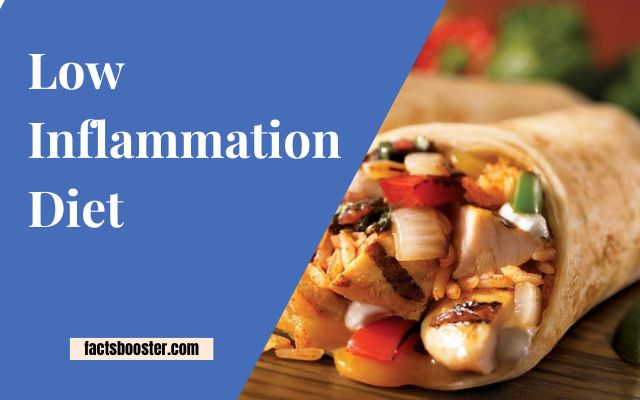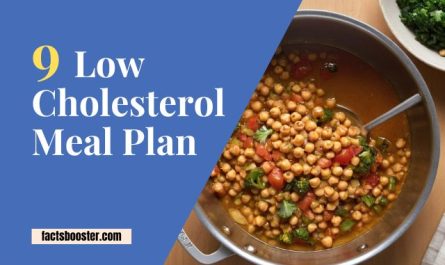Embarking on a low inflammation diet transforms not just your meals but your overall health, acting as a shield against chronic diseases. At its core, this diet is an invitation to revisit your relationship with food, exploring how what you eat impacts inflammation in your body.
Chronic inflammation, after all, is a silent adversary linked to a range of debilitating diseases, from heart conditions to diabetes. By choosing low inflammation foods, you embark on a nourishing journey that not only satisfies your palate but also fortifies your health against unseen threats.
Key Takeaways:
- A low inflammation diet focuses on consuming foods that counteract inflammation, promoting long-term health.
- Chronic inflammation can lead to serious health issues, making dietary choices crucial for prevention.
- Choosing low inflammation foods can help protect against diseases like heart disease and diabetes.

Why Inflammation Matters
It’s a bit of a double-edged sword. On the one hand, it’s our body’s natural response to infection and injury, an essential part of the healing process. Think of it as your body’s way of saying, “I’ve got this,” as it works to repair damaged tissue and fend off harmful pathogens. However, this process isn’t always our friend.
Chronic inflammation, on the other hand, is like a false alarm that never shuts off, tricking your body into thinking it’s always under attack. This relentless state can lead to a host of chronic diseases, including heart disease, diabetes, arthritis, depression, and even Alzheimer’s. So, while inflammation can be a sign that your body is on the mend, it’s crucial to keep it in check to ensure it doesn’t tip over into harmful territory.
Common Culprits: Foods that Cause Inflammation
When you’re navigating the grocery store aisles, it’s essential to steer clear of the common culprits that fan the flames of inflammation. Top of the list? Processed meats and refined carbohydrates. These items are not just everyday food; they’re archenemies of a low inflammation diet.
Let’s break it down. Processed meats, such as hot dogs and sausages, are loaded with preservatives and saturated fats that can trigger inflammatory responses in your body. On the other hand, refined carbohydrates – think white bread, pastries, and sugary cereals – spike your blood sugar and insulin levels, setting the stage for inflammation.
Consuming these foods regularly can accelerate the inflammatory disease process, paving the way for chronic conditions down the road. So, if you’re aiming for a low inflammation meal, leaving these off your plate is a smart move.
Anti-Inflammatory Foods
Embarking on a Low Inflammation Diet is like turning the key to unlock a treasure chest of health benefits. At the heart of this diet are Anti-Inflammatory Foods that serve as your allies in the fight against chronic inflammation. These foods are not just ordinary items on your grocery list; they are packed with natural antioxidants and polyphenols, wielding the power to significantly dampen inflammatory processes in your body.
So, what’s on the menu for a Low Inflammation meal plan? Think of vibrant fruits and leafy greens, such as blueberries and spinach, that are high in these protective compounds. Don’t overlook the importance of Low Inflammation food champions like nuts and fatty fish, which are not only delicious but also bring a powerhouse of omega-3 fatty acids to your meals. Incorporating these foods into your daily routine can shift the scales towards a healthier, more vibrant you.
Read more:
The Mediterranean Diet: A Model for Low Inflammation Eating
When you think of a Low Inflammation Diet, the Mediterranean Diet shines as a beacon of culinary wisdom. At its heart, this diet lavishes your meals with healthy oils, primarily olive oil, known not just for its flavor but also for its anti-inflammatory properties.
What’s a Mediterranean meal without a generous portion of whole grains? These aren’t just any grains. They’re unrefined, packed with fiber, vitamins, and minerals, all championing your body’s fight against inflammation. And let’s not forget about seafood.
Rich in omega-3 fatty acids, fish like salmon and mackerel keep inflammation in check, supporting heart and brain health. It’s no surprise that the Mediterranean Diet is hailed for lowering inflammation; it combines nutrient-dense, antioxidant-rich foods that naturally curb the inflammatory process, steering you clear of chronic diseases while invigorating your taste buds and overall wellbeing.
Designing Your Low Inflammation Meal Plan
So, you’re set on embarking on a low inflammation diet journey, and naturally, the next step is figuring out how to weave those anti-inflammatory foods into your daily meals. Let’s dive into some game-changing strategies that make meal planning and preparation not just effective but also enjoyable.
- Start Your Day Right: Kick off with a breakfast that includes anti-inflammatory staples like oatmeal topped with berries or a smoothie packed with leafy greens and a touch of ginger.
- Smart Snacking: Ditch the processed snacks for whole nuts or sliced fruits. They’re not only delicious but are brilliant at curbing inflammation.
- Make Vegetables the Star: At lunch and dinner, let vegetables take center stage on your plate. Opt for a colorful variety, and you’ll never find meals boring.
- Healthy Fats Are Your Friends: Don’t shy away from avocados, olive oil, and fatty fish. These are power-packed with anti-inflammatory benefits and make any meal instantly rewarding.
Remember, a low inflammation diet isn’t about restricting your palate but rather enriching your meals with foods that love you back. Happy planning!
Lifestyle Factors that Affect Inflammation
You might not instantly connect the dots between how you live your day-to-day life and the levels of inflammation in your body. Yet, your lifestyle choices have a massive impact, often acting behind the scenes, dictating how well your body combats inflammation—the silent culprit behind many chronic diseases. Let’s dial in on three pivotal lifestyle pillars: exercise, sleep, and stress management.
- Exercise: Adapting a physically active routine is like hitting the inflammation off-switch. Engaging in regular, moderate exercise helps in reducing inflammation, steering you clear from the path that leads to chronic health issues.
- Sleep: Think of a good night’s sleep as your body’s maintenance time. It’s when your body undergoes repair and reduces inflammation. Failing to catch enough zzz’s can, over time, turn your body into a playground for persistent inflammation.
- Stress Management: Stress is like fuel to the fire of inflammation. Finding effective ways to manage stress, be it through meditation, mindfulness, or hobbies, can significantly dampen inflammation’s impact on your body.
Embrace a holistic approach to reduce inflammation by not just focusing on your diet, but also paying heed to these lifestyle factors. It’s a journey towards a healthier, more vibrant you.
Beyond the Diet: Foods and Mood
Embarking on a low inflammation diet isn’t just about the physical benefits such as reducing the risk of chronic diseases; it’s deeply intertwined with our emotional health and overall quality of life.
When you opt for a less processed diet, rich in anti-inflammatory foods, you’re not only saying goodbye to the culprits that escalate inflammation and, consequently, chronic illnesses. You’re also welcoming a fascinating shift in your mood and emotional well-being.
Studies suggest that the same foods causing bodily inflammation can dampen your spirits, while foods that quell inflammation can uplift you. So, by choosing a path filled with vibrant fruits, leafy greens, hearty nuts, and wholesome grains, you’re setting the stage for not only a healthier but a happier you. It turns out, what you put on your plate does more than just feed your body; it nurtures your soul.
Bottom Line
Embarking on a Low Inflammation Diet isn’t just about restricting what you eat — it’s about embracing a lifestyle that nurtures your body’s natural defenses against disease and discomfort. By choosing Low Inflammation Foods, you’re investing in your health, actively reducing your risk of chronic diseases linked to inflammation such as diabetes, heart disease, and arthritis.
Foods like processed meats and refined carbohydrates are on the “not to” list for a reason; they contribute to the body’s inflammatory response. Conversely, incorporating Low Inflammation Meals filled with fruits, vegetables, nuts, and whole grains into your diet can become a cornerstone of wellness.
Remember, every meal is an opportunity to fuel your body with what it needs to fight inflammation. Making these smart dietary choices, alongside a balanced lifestyle of regular exercise and stress management, can significantly improve your health and well-being. So, take that proactive step towards a low inflammation diet today, and embrace a healthier tomorrow.
References:
1. PubMed Central, 2023 Mar 22, “Low-Grade Inflammation and Ultra-Processed Foods Consumption: A Review” (1)
2. J Am Coll Nutr, 2015, “Anti-inflammatory Diets” (2)
3. J Acad Nutr Diet, 2023 May, “Increased Adherence to a Mediterranean Diet Is Associated With Reduced Low-Grade Inflammation after a 12.7-Year Period: Results From the Moli-sani Study” (3)


